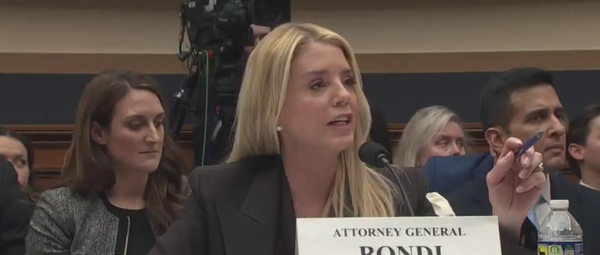Is the US ‘truly one nation’?
It feels good to think so.

I was thinking about the theory of political union, as opposed to its practice, when I came across this line from the founder of USA Today. In 1982, on the frontpage of the first edition of his fledgling daily, the late Gannet CEO Al Neuharth expressed aspirations for his new venture. “USA Today hopes to serve as a forum for better understanding and unity to make the USA truly one nation.”
But there may be no better counterargument than Connecticut’s and Florida’s opposing approaches to the covid pandemic and their opposing definitions of success. For one, it’s living. (Yay!) For the other, it’s dying. (Don’t tread on me!) In the difference lies a profound truth.
That phrase jumped out at me -- truly one nation. The implications seem many and varied. On the one hand, America is not currently one nation. If it is, it’s not a true one. On the other hand, it’s becoming one, true nation. But if it’s becoming one true nation, what is it right now? Then there’s that phrase -- “better understanding and (better) unity.” The presumption seems to be that more facts and more knowledge strengthen the bonds between and among these united states.
It’s a worthy goal, I’ll admit. It’s also a catchy slogan. But is any of it true? Is the United States one nation? If it isn’t, will it be? Does a better understanding lead to a better republic? I suspect most would say yes. Knowledge is power, after all. It advances the nation’s common purpose. Meanwhile, the United States is, not the United States are.
Yet this uncontroversial belief -- that the United States is one nation, that a better understanding of the facts makes for a stronger republic -- can inspire silliness on the part of some very serious people whose elite status among other very serious people makes them allergic to silliness. Here I’m thinking about Anjani Jain and Jeffrey Sonnenfeld, both administrators at the ballyhooed Yale School of Management.
Back in August, they co-wrote an article for Fortune in which they compared pandemic responses by the governors of Florida and Connecticut. While the former’s Ron DeSantis took a rigid, cynical and anti-intellectual approach, they wrote, the latter’s Ned Lamont took a science-based, problem-solving and collaborative approach. The result, Jain and Sonnenfeld said, was a delta variant raging across the Sunshine State versus a contained spread in the Land of Steady Habits.
CLICK HERE TO LEAVE A TIP!
There are many and varied reasons for the difference, they wrote, but chief among them is leadership style. “Leadership matters,” Jain and Sonnenfeld wrote. “Leadership matters not only in determining the effectiveness of government’s response to the public health crisis, but in shaping both individual opinions and the sense of common purpose.”
This is silly. Why? Leadership does not explain the difference between approaches to the pandemic. This can be demonstrated by swapping governors. Would Lamont’s science-based, problem-solving and collaborative approach work in Florida? I don’t live there. Let’s say maybe. (I doubt it, though.) Would DeSantis’ rigid, cynical and anti-intellectual approach work in Connecticut? I live in New Haven. The answer is absolutely oh-hell-no. We'd run him out of the capital.
If anything, their leadership styles reflect the dominant political cultures of their states, which in turn explain the difference between approaches. In Florida, anti-intellectualism is good. Railing against the “tyranny of science” is popular. Ergo, DeSantis rails. In Connecticut, anti-intellectualism is bad. The “tyranny of science” is stupid. Ergo, Lamont follows the science. Both governors are meeting standards set by their dominant political cultures. Both governors are “succeeding” despite the otherwise obvious difference between living and dying.
CLICK HERE TO SUBSCRIBE!
Is the United States truly one nation? Does a better understanding of the facts make for a stronger republic? We like to think so. But there may be no better counterargument than Connecticut’s and Florida’s opposing definitions of success. For one, it’s living. (Yay!) For the other, it’s dying. (Don’t tread on me!) In the difference lies a profound truth.
To wit: The United States are, not the United States is, for people like Ron DeSantis and the Floridians who support him. Knowledge isn’t power. It’s danger. It does not advance a nation’s common purpose. There is no nation. There is no common purpose. To project a presence onto an absence -- to insist there is such a thing as a common national purpose among those who believe there should be no such thing -- is to threaten people such that they risk their lives fighting it.
It’s said Al Neuharth was meticulous about appearances. No newspaper of his was going to be credibly accused of bias. USA Today never endorsed a presidential nominee. (That changed in 2016, though).
But for all his concern about seeming impartial, he was nevertheless partial. Same for the Yale School of Management’s Anjani Jain and Jeffrey Sonnenfeld. It can’t be otherwise, not when efforts to make “the USA truly one nation,” not when leadership in the service of a common purpose, make mortal enemies out of Americans who deny both.




